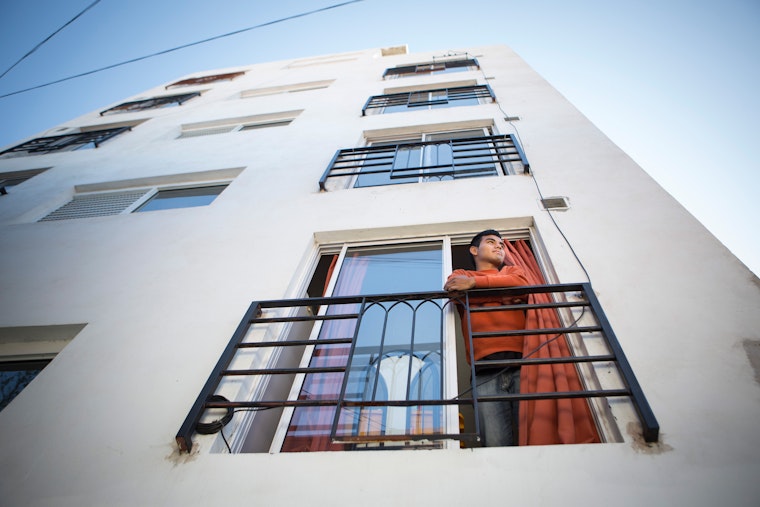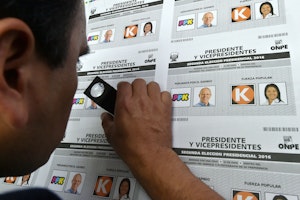In Buenos Aires, Right to Information Helps Renters Get a Foot in the Door
By Sebastián Pilo

With Argentina’s economic volatility and high inflation, it’s hard enough for people to afford their monthly rent. And while shady practices of real estate agents have made matters worse, a key transparency law is helping to turn the tide.
Nearly a million people in Buenos Aires, one-third of its population, are renters; around 90 percent find their housing through a real estate broker. In theory, a 2007 housing law limits the commission that brokers can charge to one month’s rent. Yet in practice, the Colegio Unico de Corredores Inmobiliarios de la Ciudad de Buenos Aires—an independent association of the city’s real estate agencies—has been allowing broker fees of two month’s rent or more.
Because renters must renew their leases every two years, they repeatedly incur the required costs of a new lease—first month’s rent, security deposit, administrative fees, and the often inflated broker’s commission.
As the formal rental market becomes increasingly inaccessible to the majority of the population, this has resulted in an increase in the number of people living in the villas—informal settlements lacking basic public services such as sanitation, water, electricity, paved roads, and street lights. Approximately 10 percent of the population of Buenos Aires now lives in villas, and the rent for a small house there can be the same as that of an inexpensive apartment in the city’s formal rental sector.
But renting in these shantytowns doesn’t require brokers’ commissions, so the number of people moving into them is on the rise. The arrival of new tenants—particularly young couples renting for the first time—is making rents in the slums less affordable and forcing lower-income inhabitants into homelessness and more precarious living situations.
My organization, the Asociación Civil por la Igualdad y la Justicia (Civil Association for Equality and Justice), is a nonprofit organization focused on monitoring public policies and using legal tools to fight against inequality, strengthen democracy, protect citizens’ rights, and address abuses, including corruption. Together with Inquilinos Agrupados, a group of tenant advocates, we are using the right to information to help make housing more accessible to thousands of people.
By invoking a freedom of information law in Buenos Aires, we gained access to hundreds of complaints—many of which had gone ignored by authorities—filed by tenants in the city who had been overcharged by brokers. This enabled us to show the magnitude of the abuses, establishing that the existing legal limit on commissions was being flouted. In a case we subsequently filed against the association of the city’s real estate agencies, the court ruled that brokers charging commissions exceeding the legal limit should be fined.
Though the ruling was contested, the appeals court upheld it. This victory bodes well for future collaborations between economic, social, and cultural rights organizations and those working on the right to information. The data we obtained was instrumental to an advocacy strategy that directly led to concrete changes benefiting almost one million tenants. But it’s too early to celebrate now.
Many brokers are finding new ways to circumvent the law, such as by charging inflated and deceptive administrative fees. Although we are monitoring and reporting violations, we can’t identify and address them all. The larger problem of access to affordable housing in Buenos Aires needs a systemic solution.
Still, the first step towards changing a broken system is to raise awareness of its severity. In addition to monitoring, advocacy, and litigation, we are continuing to disseminate the court ruling and educate renters about their rights. Effective access to affordable housing won’t become a reality until the people of Buenos Aires are empowered to become their own advocates. For that, as this case has shown us, access to public information can be a fundamental tool.
The Asociación Civil por la Igualdad y la Justicia is a grantee of the Open Society Foundations.
Sebastián Pilo is codirector of the Asociación Civil por la Igualdad y la Justicia.

